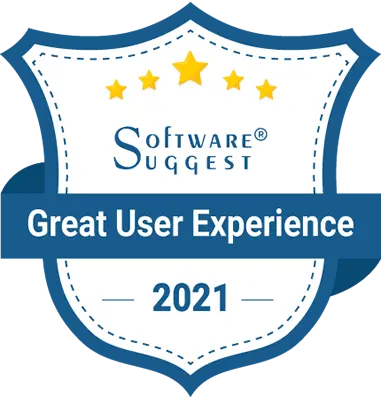Call/WhatsApp : +1 (786) 924-0778
Managing a law office requires juggling numerous responsibilities, from client communication and case management to billing and document handling. The complexity of these tasks can quickly become overwhelming, especially as a law firm grows. This is where law office management software comes in—a powerful tool designed to streamline daily operations, enhance productivity, and ultimately improve client service. This article explores the key features, benefits, and considerations when choosing law office management software for your practice.
1. What is Law Office Management Software?
Law office management software is a specialized tool designed to help legal professionals manage their practice more efficiently. This software integrates various functions like case management, billing, time tracking, document management, and client communication into one platform. By centralizing these tasks, law firms can operate more smoothly, reduce administrative overhead, and focus more on providing high-quality legal services.
2. Key Features of Law Office Management Software
When choosing law office management software, it’s essential to consider the features that will best meet your practice’s needs. Here are some of the most critical features to look for:
a. Case Management
Case management is the backbone of law office management software. It allows attorneys and support staff to organize, track, and manage all aspects of a case. This includes storing case files, tracking deadlines, managing contacts, and keeping notes. An effective case management system ensures that nothing falls through the cracks and that all case-related information is easily accessible.
b. Document Management
Legal professionals deal with vast amounts of paperwork. A robust document management system (DMS) within the software allows for easy storage, retrieval, and sharing of documents. It often includes features like document versioning, templates, and secure access controls to ensure confidentiality. Advanced DMS features may also include optical character recognition (OCR) for scanning and converting documents into searchable text.
c. Time Tracking and Billing
Accurate time tracking is crucial for billing clients appropriately. Law office management software typically includes a time tracking feature that allows lawyers to record billable hours efficiently. This can be done manually or automatically as tasks are performed. Coupled with the billing feature, the software can generate invoices, track payments, and manage trust accounts, ensuring that financial management is both accurate and compliant with legal standards.
d. Client Communication and CRM
Effective communication with clients is essential for maintaining strong relationships and delivering exceptional service. Law office management software often includes client relationship management (CRM) tools that allow lawyers to track interactions, schedule follow-ups, and manage client contact information. Some software solutions also offer secure client portals where clients can view case updates, share documents, and communicate directly with their attorney.
e. Task and Calendar Management
Keeping track of deadlines and appointments is critical in legal practice. The task and calendar management features of law office management software help attorneys and staff stay organized by providing tools for scheduling, reminders, and task assignments. Integration with personal calendars (like Google Calendar or Outlook) is often available, ensuring that important dates are never missed.
f. Reporting and Analytics
To make informed decisions, law firms need access to detailed reports and analytics. Law office management software can generate reports on various aspects of the practice, such as financial performance, case progress, and client satisfaction. These insights help law firms identify trends, optimize operations, and make data-driven decisions to improve efficiency and profitability.
3. Benefits of Law Office Management Software
Implementing law office management software offers numerous benefits that can transform how a law firm operates. Here are some of the most significant advantages:
a. Increased Efficiency
By automating routine tasks and centralizing information, law office management software significantly increases efficiency. Lawyers can spend less time on administrative work and more time on client-facing activities, leading to better case outcomes and higher client satisfaction.
b. Enhanced Collaboration
With all case-related information stored in one place, team members can collaborate more effectively. Whether working remotely or in the office, attorneys and support staff can access the same documents, case notes, and schedules, ensuring everyone is on the same page.
c. Improved Client Service
Law office management software allows lawyers to provide more responsive and personalized service. Features like CRM tools and client portals enable better communication and transparency, leading to stronger client relationships and higher retention rates.
d. Better Financial Management
Accurate time tracking and automated billing ensure that law firms are compensated fairly for their work. The software can also help manage trust accounts, track expenses, and generate financial reports, making it easier to monitor the firm’s financial health and make strategic decisions.
e. Compliance and Security
Legal practices are subject to strict regulatory requirements, particularly regarding client confidentiality and data protection. Law office management software is designed with these needs in mind, offering features like secure document storage, access controls, and audit trails to ensure compliance with legal standards.
4. Considerations When Choosing Law Office Management Software
Selecting the right law office management software for your practice is a critical decision that requires careful consideration. Here are some factors to keep in mind:
a. Firm Size and Practice Area
The size of your firm and the specific areas of law you practice will influence your software needs. Larger firms may require more advanced features and customization options, while smaller firms might prioritize ease of use and affordability. Additionally, certain practice areas may have unique requirements that some software solutions are better equipped to handle.
b. Integration with Existing Tools
If your firm already uses certain tools (such as email clients, accounting software, or document storage systems), it’s important to choose law office management software that integrates seamlessly with these existing systems. This will ensure a smooth transition and prevent the need for duplicate data entry.
c. User-Friendliness
The software should be intuitive and easy to use, minimizing the learning curve for attorneys and staff. A user-friendly interface will help ensure that the software is adopted and used effectively by the entire team.
d. Scalability
As your firm grows, your software needs may evolve. Choose a solution that can scale with your practice, whether that means adding new users, incorporating additional features, or expanding to new practice areas.
e. Customer Support and Training
Reliable customer support is crucial, especially during the initial implementation phase. Look for software providers that offer comprehensive training resources, including tutorials, webinars, and a responsive support team that can assist with any issues that arise.
f. Cost and ROI
While cost is always a consideration, it’s important to evaluate the software’s value in terms of return on investment (ROI). A more expensive solution may offer features that significantly improve efficiency, client satisfaction, and profitability, making it a worthwhile investment for your firm.
5. The Future of Law Office Management Software
As technology continues to advance, so too will the capabilities of law office management software. Here are some trends to watch for in the coming years:
a. Artificial Intelligence and Automation
AI is already making its mark on the legal industry, and its role will only grow in the future. AI-powered features in law office management software can help automate tasks like document review, legal research, and contract analysis, freeing up lawyers to focus on more strategic work.
b. Cloud-Based Solutions
Cloud-based law office management software is becoming increasingly popular due to its flexibility, scalability, and cost-effectiveness. These solutions allow attorneys to access their work from anywhere, collaborate in real time, and benefit from automatic updates and backups.
c. Enhanced Data Security
With growing concerns about data breaches and cyber threats, law firms will continue to prioritize data security. Future software solutions will likely include even more robust security measures, such as multi-factor authentication, encryption, and advanced threat detection.
d. Client-Centric Features
As client expectations evolve, law office management software will continue to develop features that enhance the client experience. This could include more sophisticated client portals, personalized communication tools, and AI-driven insights that help lawyers anticipate client needs.
Decrease time spent charging
Set up mechanized installment plans. Make gathering extraordinary equilibriums and renewing trust accounts simple with repeating charge card installments—decreasing assortment time and expanding income.

Law office management software is an invaluable tool for modern legal practices. By streamlining daily operations, improving client service, and enhancing financial management, it allows law firms to operate more efficiently and effectively. When choosing software for your practice, consider the specific needs of your firm, the software’s features and integrations, and the potential return on investment. As technology continues to evolve, law office management software will undoubtedly play an increasingly central role in the success of legal practices. Embrace these tools to stay competitive, deliver exceptional client service, and drive your firm’s growth in the years to come.
We hope you gone like and share this conten onwill help you out in managinging your firms both online and offline with other in your newtoks and in case you find out anything missing then please do let us know so that we can get in update for you. In case you are looking for more info or looking forward to get in touch with us then just fill up the simple form on ctact us page and we will revert you back our article and info will help you to stay ahead of your competetiors and give your business a boom. To know more on law office software programs




Our clients' success stories speak volumes. Their testimonials highlight our dedication to delivering quality, reliability, and affordability. With a proven track record of satisfied customers across multiple industries, you can trust that our software services are not only best-in-class but also designed to fit your budget without compromising on quality. Let us help you achieve your business goals affordably and efficiently!